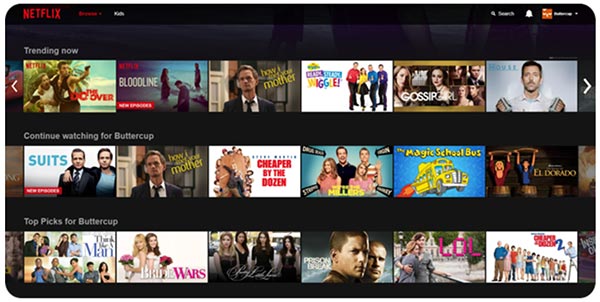Personalized Customer Experience: What, How and Why

Last updated on September 17, 2024
There’s only one thing that will make your customers want to come back to you more than the amazing customer experience. It’s an amazing personalized customer experience.
According to our latest customer experience research, 56% of customer experience professionals aim to improve and personalize the customer experience. No wonder why: personalization at scale can drive between 5 and 15% revenue growth for companies in the retail, financial services, entertainment, telecom, and travel industries.
What is personalization?
Personalization in customer experience means designing products or producing services and products to meet customers’ individual requirements. You’re most likely already familiar with marketing personalization. Personalization starts with “Hello, Susan” in your inbox and goes far beyond to personalized offers and services.
Personalization is already a necessity to survive and thrive in the era of the empowered customer as 33% of consumers who abandoned a business relationship in 2016 did so because personalization was lacking.
Given that the nature of personalization is to tailor the customers’ journeys based on what you know about them, it can be difficult to scale this process to first-time visitors to your website, or people who interact with your content on other platforms like social media. However, if you’re using a tool like Rebrandly URL Shortener to create custom short links, you can gain in-depth insight into who’s clicking on your links—regardless of where those links are posted or where they’re directed to. You can also use a feature associated with custom short URLs called “dynamic linking”, which enables you to personalize the destination of the link based on an individual user’s behavior. This is a quick and easy way to roll out a personalized customer journey, which will inevitably result in happy future customers.
Examples of personalized customer experience
Amazon
No article on personalization goes without mentioning Amazon, the leading customer-centric company. Customer focus is embedded in the DNA of the company. “Put the customer first. Invent. And be patient.” – says Jeff Bezos, CEO of Amazon.
Amazon knows a lot about their customers based on their purchase history, so they personalize and offer their customers special offers based on the customers’ interests. This type of personalization not only increases customer satisfaction but also drives loyalty and repetitive purchases.

Indeed, according to the research, more than half of online shoppers believe that retailers who personalize their offers provide a valuable service. Even more, interestingly, 45% of consumers are more likely to shop on a site with personalized offers.
Netflix
Another well-known customization leader is Netflix. Netflix has revolutionized the movie and online entertainment industries. Netflix captures the intent of the users, constantly researching the interests of its customers. Based on the user behavior, you might find an actor that you recognize, an exciting moment like a car chase, or a dramatic scene that conveys the essence of a movie or TV show in your feed.

“This is yet another way Netflix differs from traditional media offerings: we don’t have one product but over 100 million different products with one for each of our members with personalized recommendations and personalized visuals.” – shares the tech team of Netflix.
Despite recent privacy controversies with Facebook, the social media giant has mastered the art of personalization up to perfection and has a lot to teach us. Facebook personalizes all the content that a user gets: user feed and updates, local event suggestions, ads, marketplace offers, and so on. By personalizing the whole user experience, Facebook catches our attention and develops a strong connection to the user.
Mojo Coffee
Often, to create a memorable service, you don’t have to collect all the customer data online, but to be there with them. Talk to them, listen to them, and remember them. A great example of such a company is Mojo Coffee, a chain of coffee shops in New Zealand. Despite having 30+ coffee shops, each of them has a unique atmosphere and a close relationship with their visitors.
“What makes Mojo different from other coffee shops is it’s got the resources of a large company, but definitely with the heart of a small company. We ask you how your day is going and we remember your name and what you like to drink, how you like to drink it. So it’s those small touches, those fine details, that make Mojo a special place.” – Christian Cook, Mojo’s barista, says in the interview.
Another example of personal relationships affecting the impression and experience of the customer by Shep Hyken, customer experience expert, and keynote speaker.
Shep describes his experience when staying in a hotel in New York. He had a short chat with reception workers and to his huge surprise, they remembered that he mentioned his wife is coming and prepared for her visit by sending up a bottle of wine, some fruit, and chocolate, in addition to a framed picture of them together, which totally amazed Shep. “Regardless of the type of business you are in, there is always an opportunity to personalize the customer experience,” – concludes Shep.
Coca-Cola
Personalization can be a powerful marketing tool if combined together with the virality of social media. You might remember the “Share a Coke”-campaign when Coca-Cola replaced its logo with personal names on the bottles. Coca-Cola allowed its customers to self-express and stay connected with friends while unknowingly promoting the brand. For example, when a consumer shares a name-branded Coke bottle with their mother, they feel as if they are honoring their mother rather than promoting the Coke brand itself.

The campaign went viral in Australia where it started, and the brand decided to spread it across the globe in over 80 countries. The results have been astonishing. After almost a decade of declining Coca-Cola consumption, Australia estimated that the campaign increased the consumption of Coke by young adults by 7% and in the US, the sales have increased by more than 2%.
Privacy concerns, or Privacy paradox
While personalization has been a hot trend in recent years, privacy concerns have also been on the rise. Which one is more important: privacy or personalization? As customers we want businesses to know our needs and suggest services and content, yet when companies appear to have all these insights we freak out and are much less likely to engage with them.
That isn’t news. According to Accenture’s research done among the US population, 58% of consumers would switch half or more of their spending to a provider that excels at personalizing experiences without compromising trust.
There are differences between age groups. 64% of millennials value anticipation and customization of the experience, which requires utilizing their transaction data, over privacy concerns. Among this group, 46% value personalization, which requires also preferences and contact info, over privacy concerns. At the same time, 45% of baby boomers (age 55 and over) value privacy over personalization.
What to do?
A large part of consumers highly values the personalized experiences they get. Look at the examples we discussed: Netflix would not be as successful as it is, without the smart targeting it can do. But privacy concerns do exist. Therefore both businesses and consumers need to evolve their ways of working. Customers need to pay closer attention to what they’re agreeing to and take responsibility for sharing their information. But this is only possible when businesses strive to be more transparent when it comes to the use of customer data.
